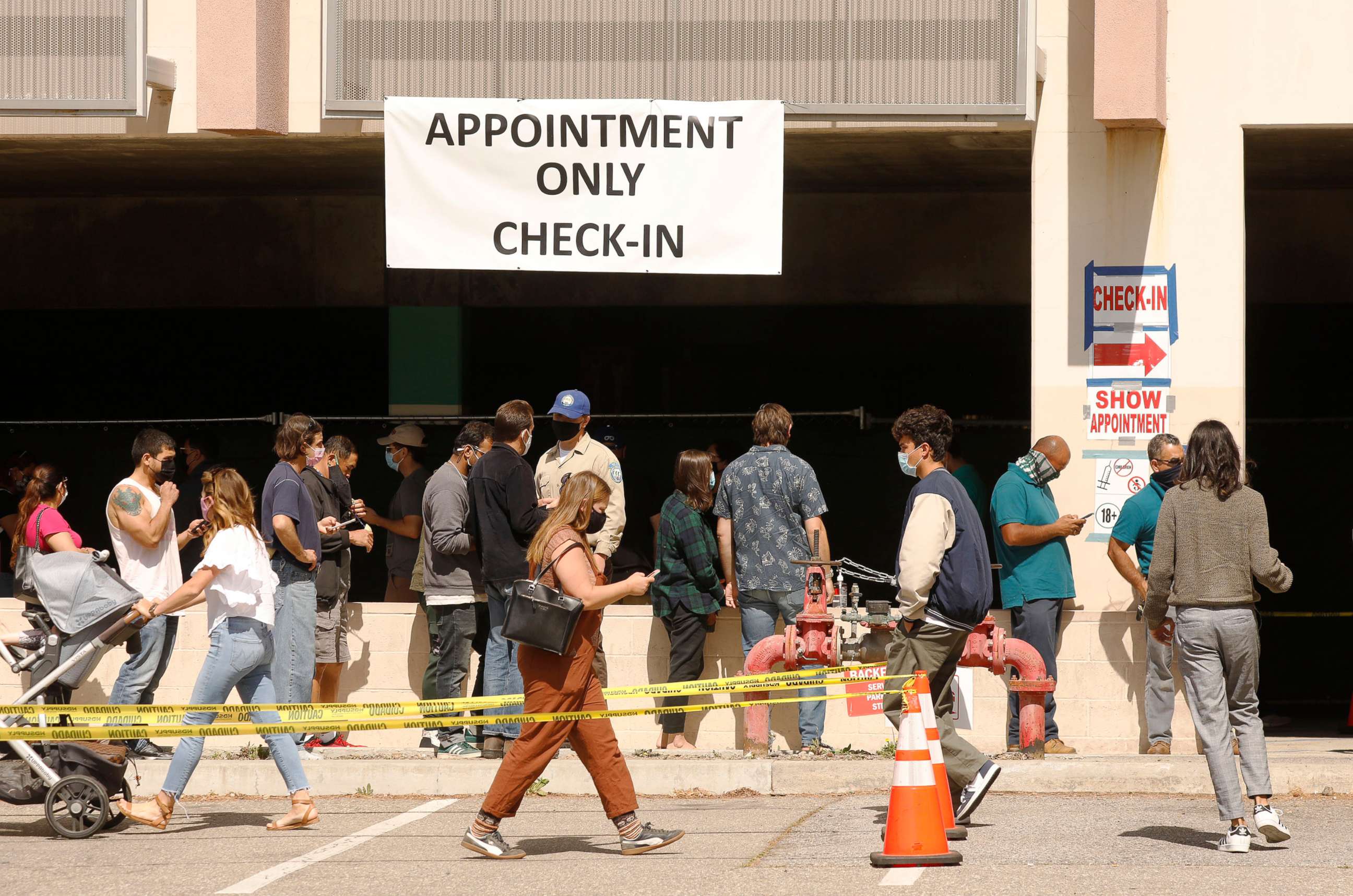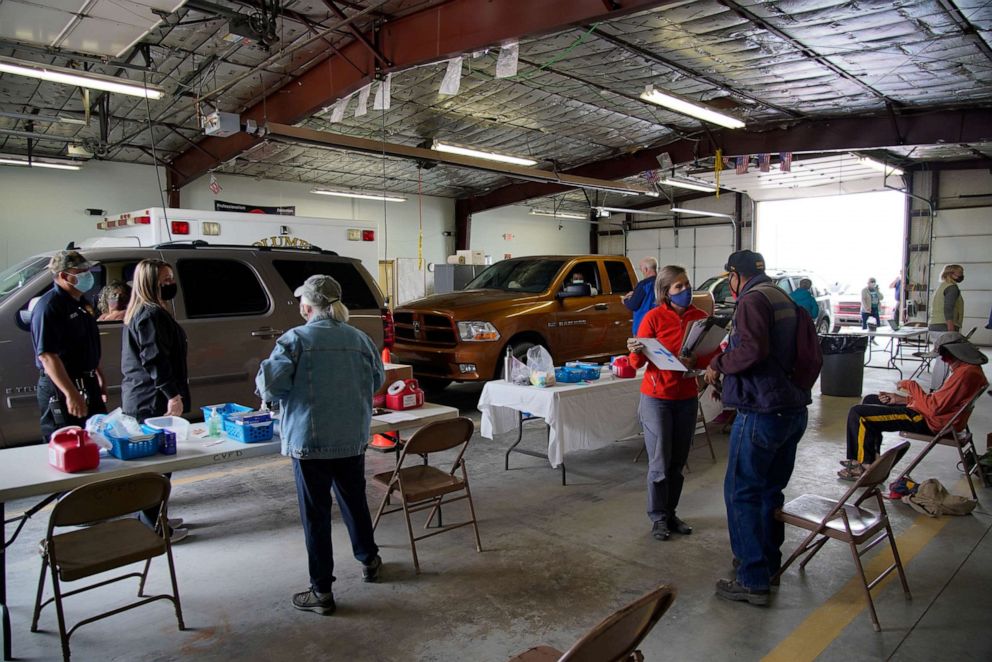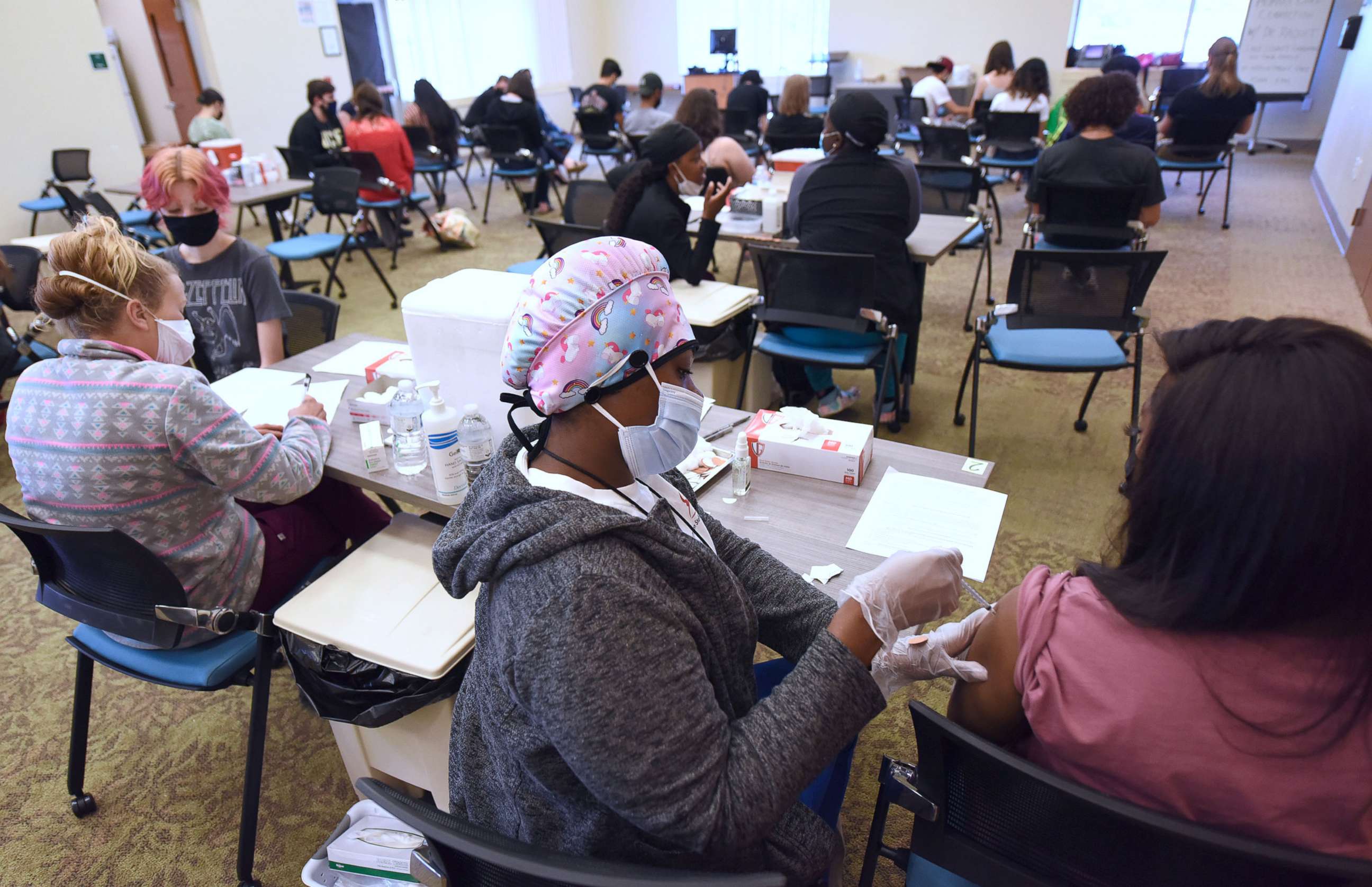Can you get vaccinated if you have COVID-19? Doctors explain what to do
You should wait, medical experts say, but you should still get vaccinated.
All U.S. adults in all 50 states became eligible for the COVID-19 vaccine Monday, but with the virus still widespread, it is inevitable that some people will test positive for COVID-19 or have a known exposure right before their first vaccine appointment or between their first and second shot.
Experts interviewed by ABC News say if you develop COVID-19, or even if you are exposed, you should probably delay your appointment.
The primary reason is to limit the chance you will spread it to others.
“It’s not safe,” said Dr. Amesh Adalja, an infectious disease specialist and senior scholar at the Johns Hopkins Center for Health Security. “You shouldn’t [go] because you are contagious, and you may infect the people vaccinating.”

Many vaccination sites are at indoor venues with dozens of people. By going to a place where most people are unvaccinated or only partially vaccinated, you would potentially expose everyone to illness.
Even if you try your luck and show up, you will likely be turned away and asked to reschedule your appointment as part of the screening process.
“There are health screening and attestation questions built into the scheduling system. If someone answers the questions truthfully, they cannot make an appointment,” a spokesperson for the New York City Department of Health & Mental Hygiene said.
CDC guidance states that people with COVID-19 who have symptoms “should wait to be vaccinated until they have recovered from their illness and have met the criteria for discontinuing isolation."
Is it OK to wait to get vaccinated?
If you are exposed between doses, spacing out your second dose beyond the typical three- to four-week window would be OK, experts said. But each person should talk to a doctor about their individual situation. Currently a second dose of Pfizer is recommended 21 days later, and a second dose of Moderna is recommended at 28 days later.
“If you have a vaccine that requires more than one dose ... it’s not wise to shorten the interval between antigenic stimuli, because then you tend to get less response to it,” said Dr. William Schaffner, professor of preventive medicine and infectious diseases at Vanderbilt University Medical Center. “However, if you lengthen it, you are likely to get more of a response. So, it never hurts to wait a little longer.”

If you're infected before your first shot, studies suggest there's a benefit to waiting several weeks after you recover to get vaccinated.
For example, as outlined in the New England Journal of Medicine, a new study suggests that for people who recently recovered from COVID-19, it might be worth waiting three months before getting a vaccine. The study specifically looked at Italian health care workers who got the Pfizer vaccine, finding they were more likely to have a higher antibody response if they waited more than three months after recovery to get their first shot.
Scientists at the Icahn School of Medicine at Mount Sinai also recently found that people who previously had COVID-19 generated a similar or stronger antibody response after just one dose of the Pfizer-BioNTech or Moderna vaccine, compared to people who never had COVID-19 and received two doses of the vaccine.
Together, these studies suggest there may be a benefit to waiting several weeks or even months to get a vaccine shot after having immunity from a natural infection, because your body will potentially generate an even greater immune response.
The current CDC guidance does allow for vaccination after recovering from COVID-19 and suggests you could wait 90 days. It’s important to talk with a doctor about your current risk level when deciding when to get your vaccine.
When can you make a new vaccine appointment?
If you have COVID-19 with symptoms, you should wait until at least 10 days have passed since your symptoms started. Wait until you haven’t had a fever for at least 24 hours and other symptoms have improved. People with severe symptoms may be advised to wait at least 20 days.
If you have COVID-19 without symptoms, you can discontinue isolation 10 days after the first positive PCR test and schedule an appointment for afterward.
If you’ve been exposed to COVID-19 through close contact with someone who is infected, you should quarantine for 14 days and monitor symptoms. Some local health departments have given options for shorter quarantine periods if you remain asymptomatic. You can end quarantine after 10 days without testing or end quarantine after 7 days if you have a negative COVID-19 test on Day 5 or later.

Experts said the most important thing to keep in mind is that while you are trying to protect yourself through vaccination, make sure you aren’t jeopardizing other’s health by showing up at a vaccine site while knowingly infected or at a high likelihood of being infected.
“You want to be quarantined, you don’t want to spread this virus to other persons,” Schaffner said. “The antibody response you are going to get and the consequent short-term protection” from natural infection buys you time, he said.
And, he emphasizes, “When you recover you should still get vaccinated.”
Adjoa Smalls-Mantey, M.D., D.Phil., is trained in immunology and is a psychiatrist in New York City. She is also a contributor to the ABC News Medical Unit.
ABC News Med Unit's Dr. Sara Yumeen contributed to this report.



